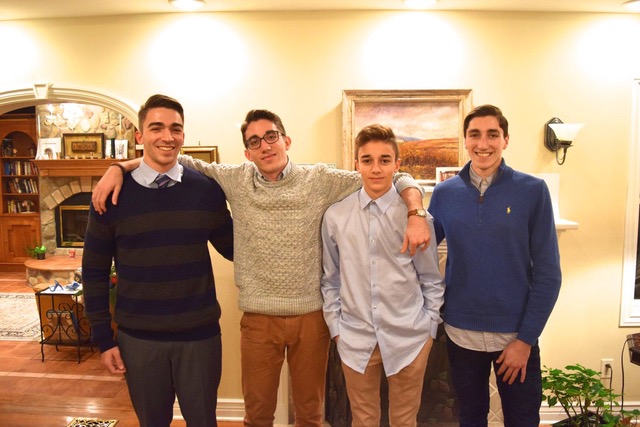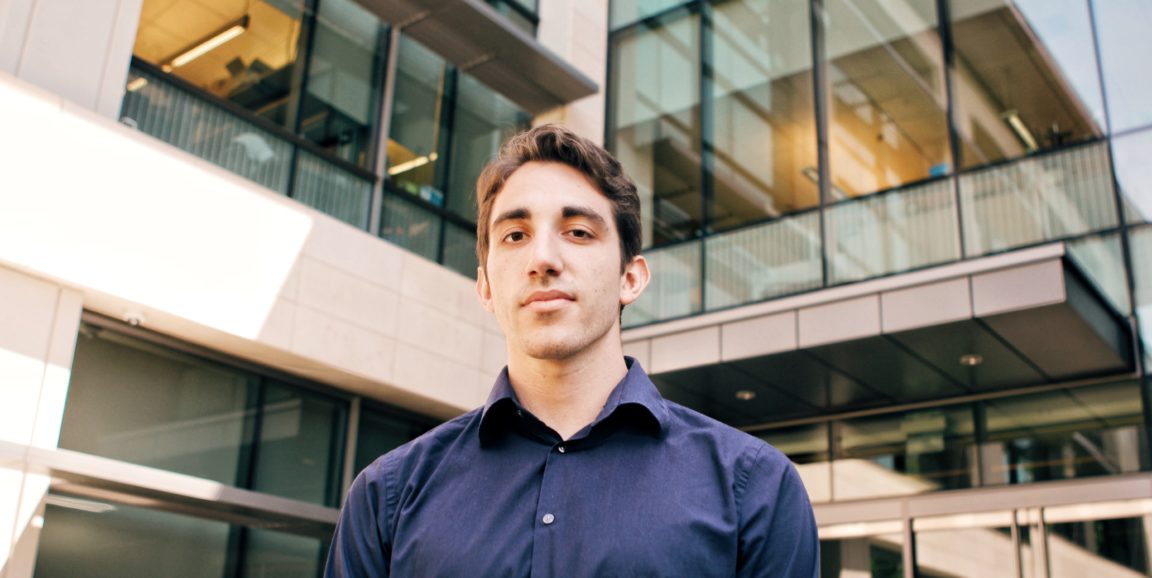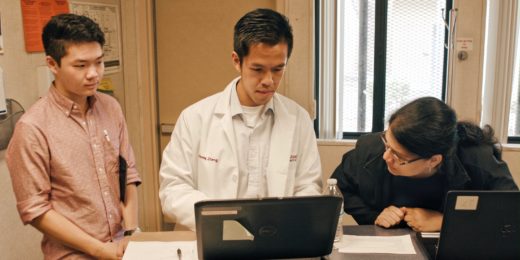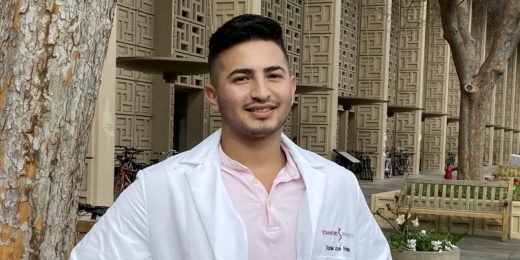Andrea Garofalo did not tear up when he talked about what inspired him to pursue a career in medicine. But I did.
It was our third day filming for the #WeAreStanfordMed videos, a series spotlighting Stanford medical students and the impact of financial assistance on their education and aspirations.
We'd set up in a study room on the fourth floor of Stanford Medicine's Li Ka Shing Learning and Knowledge Center. Surrounded by a jumble of tables and chairs, messy piles of textbooks and our studio lights and reflectors, Garofalo quietly recounted a conventional childhood in the Midwest that was memorably disrupted when he was 12.
Born in Bologna, Italy, he'd moved to the United States when he was five. Garofalo and his three brothers grew up in West Lafayette, Indiana, where their parents worked as math professors at Purdue University.
Garofalo, the oldest, was close with Francesco, a year younger.
One day when they were walking the dog, Garofalo noticed that his brother had stopped participating in their conversation -- he seemed to be temporarily mute. A few days later, when the boys were skateboarding, Garofalo looked back to see that his brother was on the ground, unresponsive.
He remembers feeling confused and helpless. A sense of dread.
His parents sought medical help for Francesco. The results of a brain scan were sobering. "They told us that there was some kind of mass, which at the time was quite terrifying because we didn't know what it was," Garofalo told us.
An evaluation revealed that the tumor was benign, a bittersweet realization. While the family was relieved Francesco didn't have cancer, they knew that removing the lesion that caused his seizures meant he would have to undergo brain surgery at the age of 11.
Meanwhile, Francesco continued to have seizures, each time triggering panic in Garofalo. Their parents spent weeks researching the tumor, possible procedures and selecting a hospital.
The big day arrived; the operation would take eight hours.
The family waited. When the surgery was over, finally, Garofalo visited Francesco's room and spoke to his drowsy brother. Francesco mumbled a few words in response.
Garofalo remembers feeling relieved: "Just the fact that he had passed that gauntlet and was now safe in a hospital bed on the way to recovery was a huge burden -- this accumulated burden over the past couple months of tension and anxiety and fear -- being released," he said.
Francesco recovered quickly, and within a week, the family was celebrating together with a dinner out at a restaurant. It was then that Garofalo decided that neurosurgery was king among professions.
"He had allowed us to go back to the previous existence before this terrible thing happened," Garofalo told us. "That gratitude toward this surgeon really just inspired me to want to have the same role in someone else's life."

Garofalo never wavered from his desire to go to medical school, but his research after college has led him to explore other specialties.
Studying glioblastoma led him to focus on the biology of tumors which led him to cancer genomics and a general interest in oncology. He's currently working in the lab of Ash Alizadeh, MD, PhD, on a project that examines how the Epstein-Barr virus causes cancer in people with weakened immune systems.
Now in his third year of medical school, Garofalo recently started Stanford Medicine's MD-PhD program, which fully funds both tuition and living expenses. He hasn't yet decided on a specialty, but he told us he feels strongly about becoming a clinician.
"Even now when I walk through the hospital, I relate to the people there," Garofalo said.
I see a family in the hospital, and the immediate association is this image of us sitting in the hospital waiting for my brother to come out of the operating room.
Every time I experience that, I get this kind of jolt... that whatever hardship or temporary hardship I have had to go through to get through the next phase of school is worth it. Because there are hundreds, thousands, millions of people around the world who are currently, at this moment, going through what my family went through 15 years ago.
And they could use my help. I hope.
#WeAreStanfordMed is a video series spotlighting Stanford medical students and the impact of financial assistance on their education and aspirations.
Top photo and video by Luceo. Middle photo courtesy of Andrea Garofalo.






